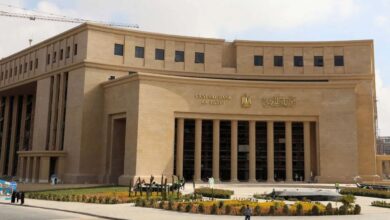The Egyptian pound has fallen steadily against the US dollar over the past two weeks, with analysts partly attributing the decline to the greenback's rise in value on global markets.
On Tuesday, the dollar hit LE5.7057, representing its highest value against the Egyptian pound since January 2007.
According to local analysts, the Egyptian pound is being unfairly undervalued in light of improved economic growth and recovering foreign fund inflows. The Central Bank of Egypt (CBE), they say, is inclined towards raising domestic interest rates later this year to counter the threat of rising inflation.
The CBE's policy may affect local currency, analysts point out, noting that the bank hoped to stimulate exports and raise foreign currency reserves to ensure its ability to defend the pound if necessary in advance of upcoming presidential elections slated for next year.
"There is either a deliberate attempt to weaken the pound, or to build up sufficient reserves to cushion the market in the event of a monetary outflow in the run-up to presidential elections," Shahin Vallee, head of emerging market foreign exchange strategy at French bank BNP Paribas, told Reuters.
Vallee added that the fall of the Egyptian pound against the dollar suggested to traders that the CBE was not interested in bolstering the local currency.
A CBE source told Al-Masry Al-Youm that, "The bank's policy is clear: the Egyptian pound is subject to supply and demand rather than to speculation."
Local wheat importers, for their part, denied any relation between increased wheat imports and the dollar's resurgence on the local market.
Translated from the Arabic Edition.




